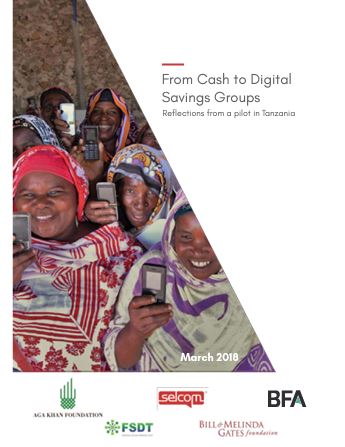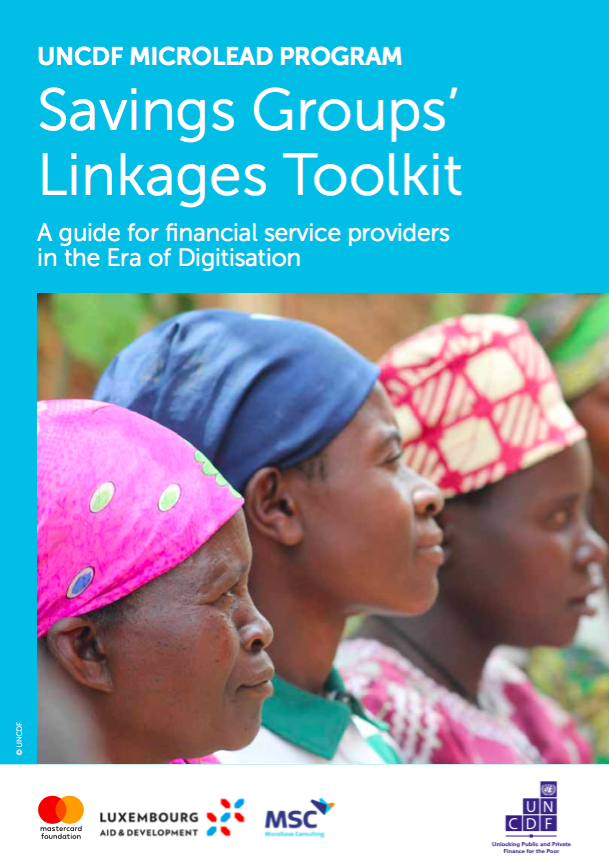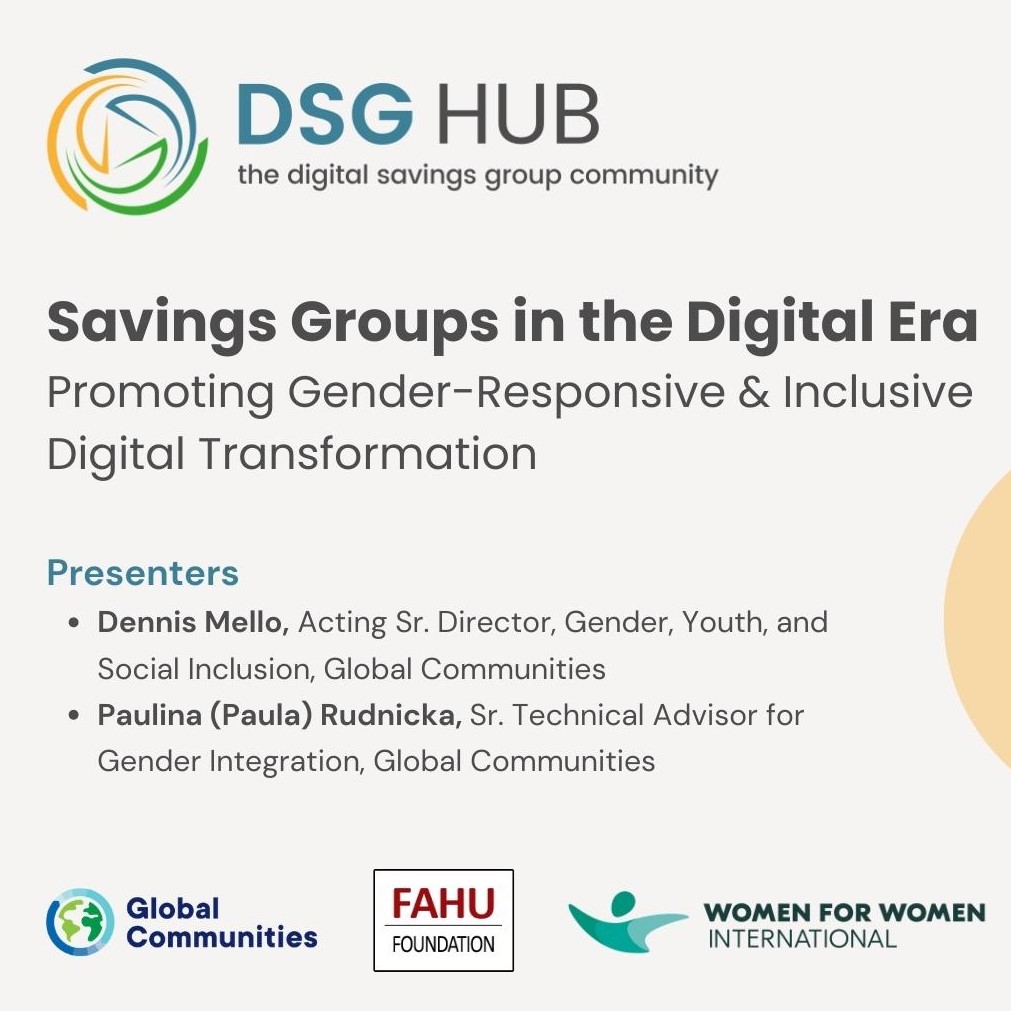This study presents findings about the effects of digitization on women’s savings groups from a randomized control trial in Southern Tanzania. The trial was implemented in 2016-17 by the Aga Khan Foundation (AKF), Selcom, and BFA Global. The product tested was a software platform built by AKF and Selcom that allowed group members to save, request loans, make loan payments, and receive loans and share-outs through mobile money. The researchers tracked the savings and loan behaviors of 206 women in 23 savings groups and investigated their skills and attitudes toward mobile technologies. The savings groups were randomly assigned to two groups: control (continue to operate as Cash Savings Groups) or treatment (cashless Digital Savings Groups) (DSGs).
The study found that DSG members were initially skeptical about using a new digital product. In fact, the novelty and risk aversion drove some group members away, which eroded trust in the groups. DSG members who persevered, however, eventually gained confidence in the platform while many members who dropped out stated that they would re-join for the next DSG cycle. The results indicate that digitization improved the perceived safety of funds, saved members time, and increased members’ comfort using mobile phones and mobile money. Digital learning and improved attitudes towards digital financial services were added benefits, albeit their pace and magnitude were modest. The study concludes that digitizing saving groups appears to create encouraging progress towards closing the digital divide, although expectations that digitization is an easy fix for the digital divide need to be tempered. The study includes a set of recommendations on how additional training and peer learning opportunities could enhance the benefits of the DSG platform.
This study will be useful to organizations interested in implementing and evaluating DSG projects.




